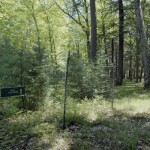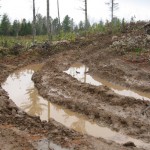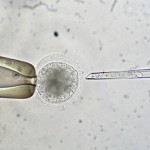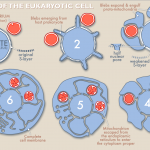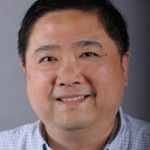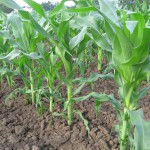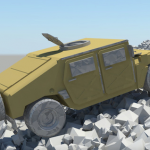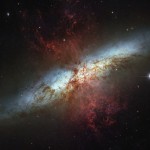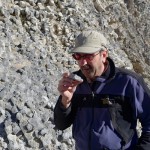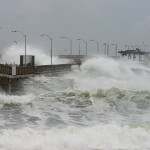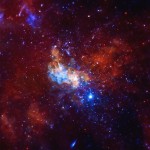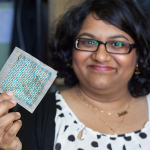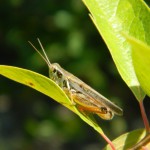Category Science & Technology
Deer account for almost half of long-term forest change, study finds
A study released this week has linked at least 40 percent of species changes in the forests of northern Wisconsin and Michigan over the past 60 years to the eating habits of white-tailed deer.
Muddy forests, shorter winters present challenges for loggers
Stable, frozen ground has long been recognized a logger’s friend, capable of supporting equipment and trucks in marshy or soggy forests. Now, a comprehensive look at weather from 1948 onward shows that the logger’s friend is melting. The study, published in the current issue of the Journal of Environmental Management, finds that the period of frozen ground has declined by an average of two or three weeks since 1948.
Neal First, whose work led to cattle cloning, dies at 84
Emeritus Professor Neal First, a pioneer in cattle reproduction and cloning who studied animal physiology at the University of Wisconsin–Madison for 45 years, died Nov. 20 from complications of cancer.
New theory suggests alternate path led to rise of the eukaryotic cell
As a fundamental unit of life, the cell is central to all of biology. Better understanding how complex cells evolved and work promises new revelations in areas as diverse as cancer research and developing new crop plants.
New studies power legacy of UW–Madison mitochondrial research
Dave Pagliarini recently published two studies shedding more light on coenzyme Q and how it’s made, one in the Proceedings of the National Academy of Science (PNAS) in October and another today in Molecular Cell.
With new professor, university-industry effort to focus on energy storage
With expertise in energy storage systems for electric vehicles, smart-grid technology and military applications, Deyang Qu will be the first Johnson Controls Endowed Professor in Energy Storage Research.
Internet of Things Lab focuses on tech-savvy inventions
If six young technologists at University of Wisconsin–Madison have their way, bike thieves around campus will face a new obstacle: bikes capable of “talking” to Internet-connected bike racks.
Collaboration yields new organic sweet corn variety
When the time comes for Wisconsin’s organic farmers to decide which crops to plant next year, they’ll have a tasty new variety of sweet corn — with a particularly sweet name — among their choices. The new variety, called “Who Gets Kissed?,” is the first in a series of organic, open-pollinated sweet corns being developed through a plant-breeding project led by researchers at the University of Wisconsin–Madison and the Organic Seed Alliance (OSA). Farmers and professional breeders are also involved.
Letting off steam: Gas discharge terminates galaxy’s star formation
With the help of a radio telescope in the French Alps, an international team of astronomers, including two from the University of Wisconsin–Madison, has observed a never-before-seen stage of galactic evolution. Writing in this week’s Nature, a group that includes UW–Madison astronomers Aleks Diamond-Stanic and Christy Tremonti, reports measurements of dense, cold hydrogen gas being blasted from a distant star-forming galaxy, the first direct observation of the “blow out” phase of a galaxy’s evolution.
Computer equal to or better than humans at cataloging science
In 1997, IBM’s Deep Blue computer beat chess wizard Garry Kasparov. This year, a computer system developed at the University of Wisconsin–Madison equaled or bested scientists at the complex task of extracting data from scientific publications and placing it in a database that catalogs the results of tens of thousands of individual studies.
UW team explores large, restless volcanic field in Chile
If Brad Singer knew for sure what was happening three miles under an odd-shaped lake in the Andes, he might be less eager to spend a good part of his career investigating a volcanic field that has erupted 36 times during the last 25,000 years. As he leads a large scientific team exploring a region in the Andes called Laguna del Maule, Singer hopes the area remains quiet.
Study models the past to understand the future of strengthening El Niño
El Niño is not a contemporary phenomenon; it’s long been the Earth’s dominant source of year-to-year climate fluctuation. But as the climate warms and the feedbacks that drive the cycle change, researchers want to know how El Niño will respond. A team of researchers led by the University of Wisconsin’s Zhengyu Liu will publish the latest findings in this quest Nov. 27 in Nature.
Telescopes hint at neutrino beacon at the heart of the Milky Way
Thanks to a confluence of data from a suite of vastly different telescopes, there are tantalizing clues that the massive black hole at the core of the Milky Way may be a cosmic accelerator. In a recent paper published in the journal Physical Review D, a team led by University of Wisconsin–Madison physicist Yang Bai reports a correlation of IceCube data with a recorded burst of X-rays from Sagittarius A, an object at the center of our galaxy that is believed to be a supermassive black hole.
Save power, make power: UW chemist confronts ambitious agenda with a brash laugh
Trisha Andrew, a UW assistant professor of chemistry, holds a solar cell that her research group printed on paper last year. She’s currently…
Grasshoppers signal slow recovery of post-agricultural woodlands, study finds
New research by Philip Hahn and John Orrock at the University of Wisconsin–Madison on the recovery of South Carolina longleaf pine woodlands once used for cropland shows just how long lasting the legacy of agriculture can be in the recovery of natural places. By comparing grasshoppers found at woodland sites once used for agriculture to similar sites never disturbed by farming, Hahn and Orrock show that despite decades of recovery, the numbers and types of species found in each differ.
AAAS honors four UW–Madison professors for advancing science
Four members of the University of Wisconsin–Madison faculty have been elected fellows of the American Association for the Advancement of Science (AAAS), the society announced today.
Satellite history at UW–Madison comes full circle with award
Michael Pavolonis thinks of himself as a volcano guy.

